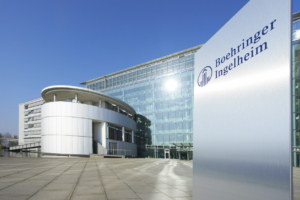EMA recommends nine drugs for approval
The European Medicines Agency's (EMA) Committee for Medicinal Products for Human Use (CHMP) recommended nine medicines for approval, including two orphan medicines, at its May 2018 meeting.
For the first time, the agency granted market authorisation for a migraine antibody, Aimovig (erenumab), a calcitonin gene-related peptide blocker developed by Amgen and licenced from Novartis.
Two orphan drugs also received the EMA’s okay: Tegsedi (inotersen), an antisense TTP blocker developed by Ionis Pharmaceuticals Inc and licenced from Akcea Therapeutics Inc., which aims to affect the course of the disease and improve quality of life; and the recombinant leptin Myalepta (metreleptin) developed by Novelion Therapeutics for the treatment of leptin deficiency.
Futhermore, the CHMP recommended granting a marketing authorisation for four biosimilar medicines, three of which are Humira (adalimumab) biosimilars: Halimatoz, Hefiya and Hyrimoz (all developed by Sandoz), to treat the inflammatory and autoimmune disorders describes under the original label; while Pfizer’s Herceptin biosimilar Trazimera (trastuzumab) was recommended for the treatment of breast and gastric cancer.
Also, Otsuka Pharmaceutical Co. Ltd’s/ H. Lundbeck A/S’s agonist of the dopamine D2 and serotonin receptors Rxulti (brexpiprazole) got the go ahead for the treatment of schizophrenia. The Committee also recommended Cycle Pharamceuticals Ltd’s generic medicine Nityr (nitisinone), for the treatment of hereditary tyrosinemia type 1.
The CHMP adopted a negative opinion refusing a marketing authorisation for Sarepta Therapeutics Inc’s Duchenne muscular dystrophy treatment Exondys (eteplirsen). Sarepta requested a re-examination. Alsitek (masitinib) developer AB Science withdrew the request for re-examination of the Committee’s negative opinion for its ALS candidate.
The EMA also restricted the use of two checkpoint blockers as first-line monotherapy for bladder cancer: Merck & Co’s PD-1 inhibitor Keytruda (pembrolizumab) and Roche’s PD-L1 blocker Tecentriq (atezolizumab). The agency said that patients expressing low levels of PD-L1 had lower overall survival improvement than those treated with chemotherapy. To have a benefit vs chemotherapy patients to receive Keytruda must have a combined positive PD-L1 score (CPS) ?10. Those receiving Tecentriq must have a PD-L1 expression of more than 5% in their tumour cells.



 Boehringer Ingelheim
Boehringer Ingelheim Olga Yastremska, New Africa, freepik
Olga Yastremska, New Africa, freepik